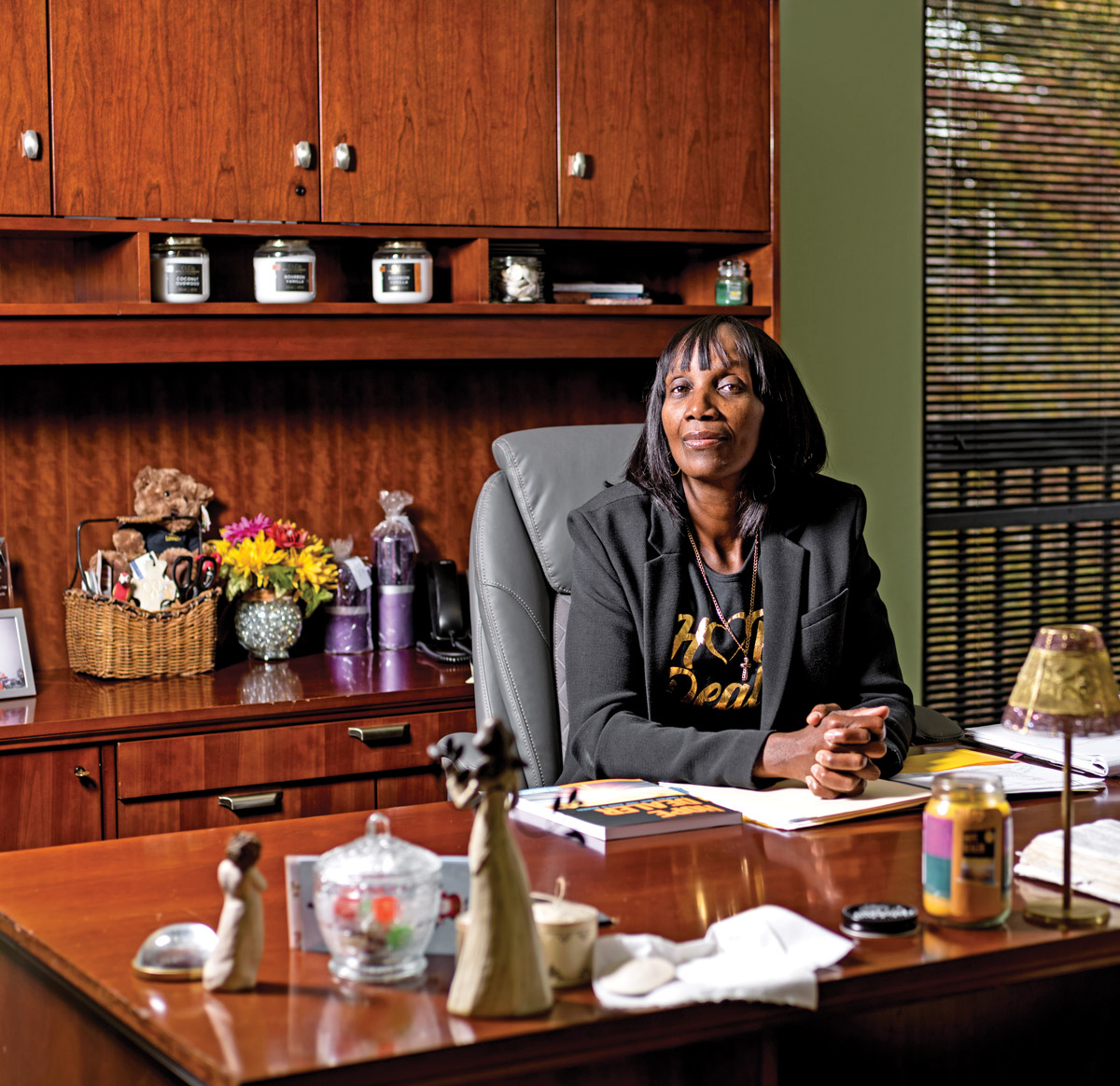TagsalcoholismAtlantansEast CobbLucy HallMary Hall Freedom House
Home The former New Yorker who discovered a more integrated society
What makes us Atlantans
The former New Yorker who discovered a more integrated society

Photograph by Johnathon Kelso
Lucy Hall
Age 52
Founder and CEO of Mary Hall Freedom House
I grew up in New York, in a village called Tuckahoe in Westchester County. We lived in the projects, but I didn’t realize they were projects until I was 40 and my sisters were talking about it, and I said, “Those weren’t projects!” But they were. We were considered poor, but we didn’t feel poor. Because there was community, and that was richer than the money that you had. Today, there aren’t communities. Back then, I knew my neighbors. I said “hi” to the same people every day. Hell, I can’t even tell you who lives on my block, where I live here in East Cobb. That’s the difference today. I think the world lost the community.
If you grew up in alcoholism or around it, like I did, you saw the dysfunction. [Hall’s mother, Mary, died of alcoholism.] I became addicted to alcohol and then crack cocaine. I was always too afraid to stick a needle in my arm. I never did those things. I never did pills, but what I did was bad. One’s no better or worse than the other, whether you drink yourself to sleep every day or whether you smoke yourself. A drug is a drug. My journey ended with them saying, “You have the right to remain silent.” My addiction had taken me to the place where I started shoplifting. They sent me to treatment, and my recovery began.
That was in New York. I moved here in 1994 when I was 27. I’d come down to visit my brother. I remember we went to the South DeKalb Mall, and I’m like, “Holy cow, look at all these black people!” Blacks and whites were all in the same place. In New York, it was very segregated.
I wanted to start a cleaning business. Met some wealthy people, started cleaning for them. But I hated that. So, I took a job at Cascade House, which was a homeless shelter for the YMCA. I’d been a counselor in New York. The women in that shelter were there for domestic violence, substance abuse, mental illness, undereducated, underinsured, underemployed, under-everything. The shelter was set up to give them 30 or maybe 90 days, and then, they had to get out, and they were no better than they were when they came in.
Twenty-three years ago, if you look at the role of recovery or treatment centers in Georgia, there were none that were gender-specific, meaning for women. So, that’s what led to starting Mary Hall Freedom House in 1996—my own personal journey. It was like, Okay, well, you know what it’s like to turn your life around. Help other people do it. [Today, Mary Hall Freedom House employs 74 people and provides housing and services to 200 women on any given day.]
After I moved here, I was looking for a church, and I went to East Cobb United Methodist Church. It was predominantly white. I remember sitting next to Miss Robinson, God bless her soul. This older white woman. After the service, she said, “My dear, why won’t you come to my Sunday school class?” Miss Robinson wasn’t a woman that you could say no to. Everybody in that class had to be over 60 years old, and Miss Robinson wanted to introduce me as her new friend. That was the best Sunday school class I’ve ever gone to. The next week, I came home from work, and somebody from church had left me a loaf of bread and a cake. That was the only time anybody has ever welcomed me in a community. I’ll never forget that.
So, I paid it forward. I just got new neighbors, and what did I do? I went to Whole Foods, and I said to a couple next to me, “If your neighbor was bringing you something, would you want a cake or a loaf of bread?” They said a cake. So, I went to my neighbor’s house one Saturday afternoon, rang their bell, introduced myself and they were shocked, but they were very welcoming. Now, I know who my neighbors are. I think we should do more of that just so people feel welcome. That’s what’s missing—the sense of community. I’m grateful that I get to create community here at Mary Hall. It keeps me humble.






![The North Carolina Museum of Natural Sciences’ newest exhibit is a [pre]historic first](https://cdn2.atlantamagazine.com/wp-content/uploads/sites/4/2024/04/DD-3-100x70.jpg)


